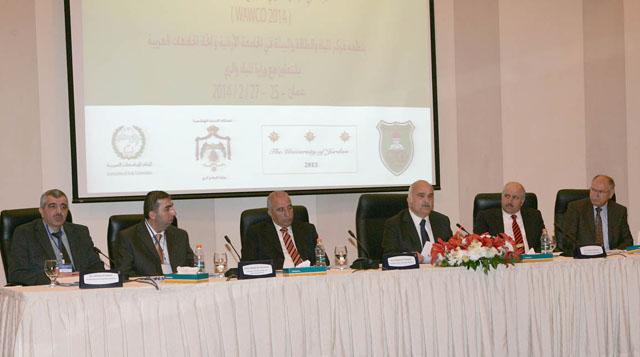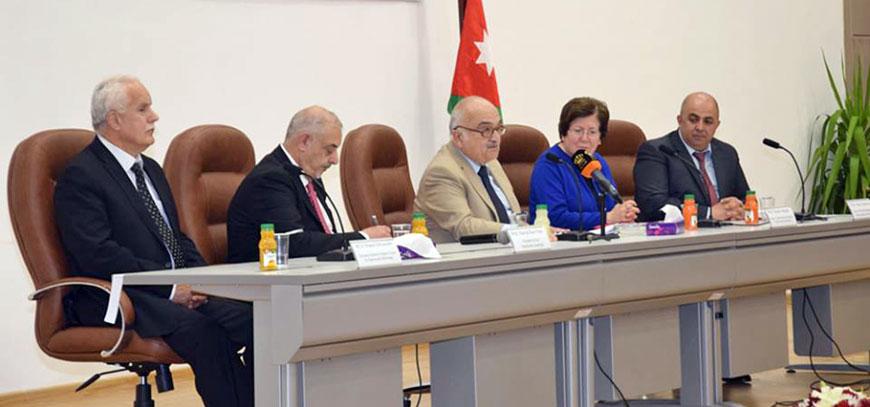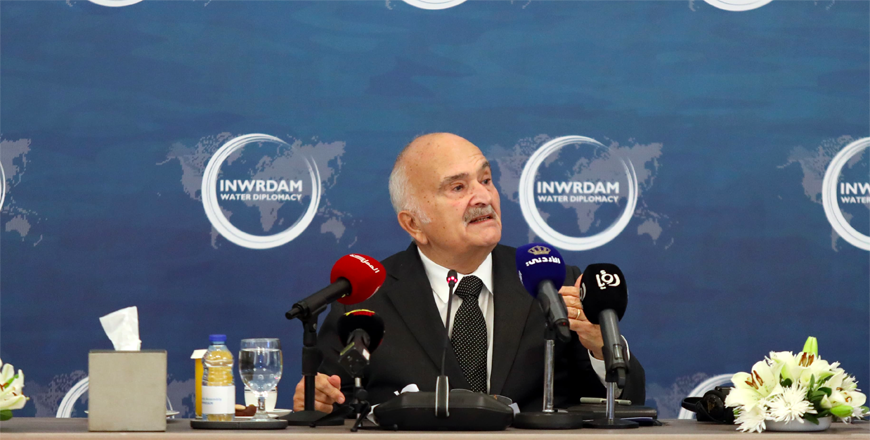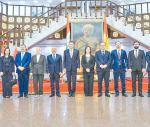You are here
Prince Hassan calls for establishment of regional water investment fund
By Hana Namrouqa - Feb 25,2014 - Last updated at Feb 25,2014

AMMAN — Increasing sustained investment in water infrastructure is crucial, HRH Prince Hassan said on Tuesday, calling on Arab states to establish a fund to protect the region’s scarce water resources.
He also underscored that by preserving these resources, Arab states would be protecting human dignity.
Speaking at the Water in the Arab World: Status, Challenges and Opportunities Conference, the prince added that regional scientists should be brought together to strengthen existing water governance.
In addition, he called for the establishment of a mid-term resilience plan for the region, as an outbreak of diseases in Syria and across all the refugee camps is “inevitable”.
Prince Hassan, who is chairman of the UN Secretary General’s Advisory Board on Water and Sanitation, also criticised Arab absence from important water deliberations and negligence of water issues.
“I have never received support from any Arab country… the support I’m looking for is a unified stand regarding issues proposed for this year, which is the sustainable development goals year, and we are living today a sustainable turmoil,” he said.
Prince Hassan added that despite involving Arab ambassadors, he didn’t receive any indication from the Arab states that “water is an important subject.”
“In referring to social tensions, we are speaking largely of undisciplined urbanisation; we are speaking of arid zones,” the prince said, noting that with the help of the International Centre for Agricultural Research in the Dry Areas, a proposal was presented to finance the establishment of a regional arid zone academy.
“I have yet to receive any indication of support or interest from this region,” he noted.
The prince said a UN conference on development goals will be held in April, with the presence of the World Bank and International Monetary Fund presidents.
“… those of you who are interested in promoting an authentic Arab participation in this meeting, you serve your communities and I’m at your service. If this initiative fails, it will be another example of an assumption, may I say the fact, that there is no Arab region,” Prince Hassan told the audience.
The three-day conference, organised by the University of Jordan’s water, environment and energy centre, assembles researchers and experts from 15 countries to address water-related challenges that are impeding the Arab region’s socio-economic development.
These challenges include drought, increasing demand due to growing population, low water use efficiency in the agricultural sector, high non-revenue water in the domestic sector, climate change, lack of financial resources to sustain infrastructure and management of trans-boundary water resources.
During the event, Minister of Water and Irrigation Hazem Nasser highlighted the importance of water demand management for the region to tackle its water crisis in light of increasing demand and shrinking resources.
“There is not one Arab country that practises water demand management in a sound way, except for three countries which are close to correctly managing their water demand, and those are Jordan, Tunisia and Morocco,” Nasser said.
He underscored that research centres in the Arab world should conduct extensive studies on several issues that affect the water sector in the Arab world, such as climate change and its impact on the sustainability of water resources, and the effect of the growing population due to migrations on water resources.
Nasser said studies indicate that the region’s water deficit is projected to triple to 130 billion cubic metres by 2030, noting that the expected deficit will necessitate projects estimated to cost Arab states $200 billion by 2030, which will place further burdens on the region in terms of raising the required funds and retrieving project costs.
The minister highlighted that water sources in the region are expected to drop by 20 per cent during the next two or three decades due to climate change, noting that Arab states should reconsider their conventional water strategies, which primarily rely on increasing resources and to a much lesser extent on demand management.
Related Articles
AMMAN — HRH Prince Hassan on Sunday underlined the importance of connecting researchers and policymakers to address challenges in the fields
AMMAN — HRH Prince Hassan, chairman of the Higher Council for Science and Technology (HCST), on Tuesday inaugurated the 36th Forum of the Is
With the region’s water deficit projected to triple to 130 billion cubic metres by 2030, water demand management must be incorporated in water strategies, a senior government official said on Sunday.


















